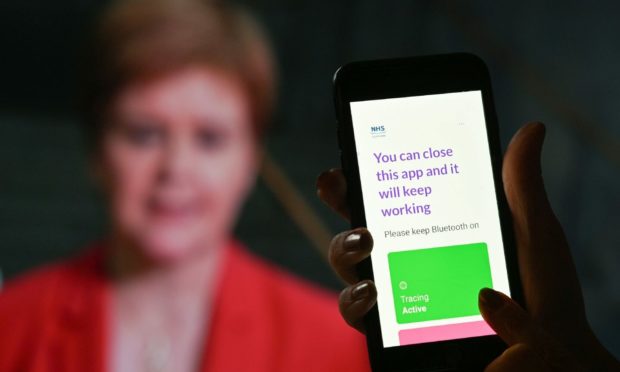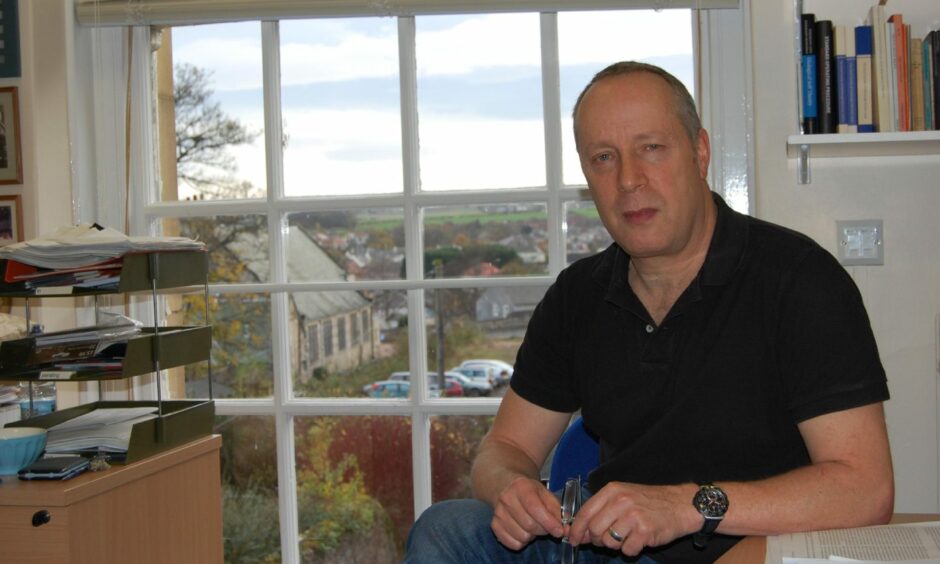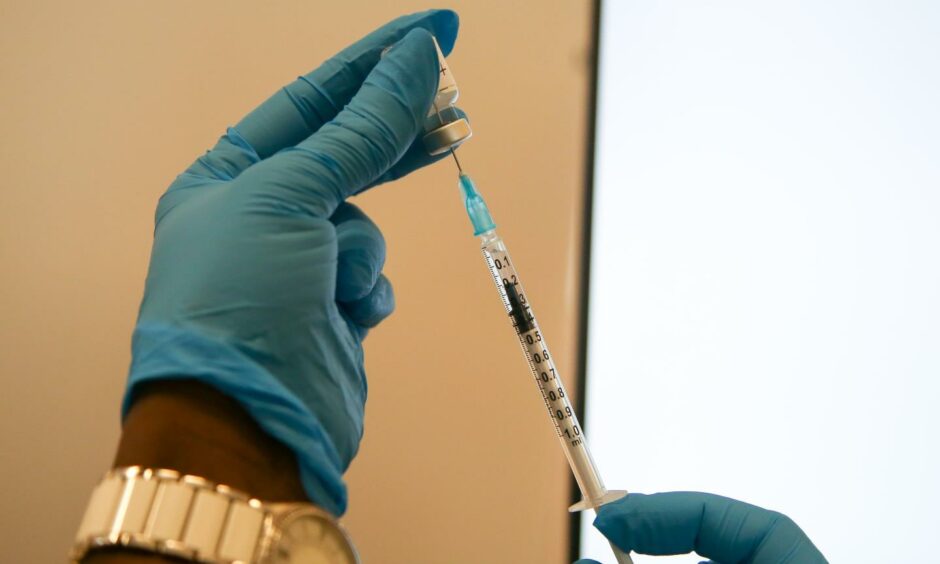A Covid expert has described a 50,000 drop in the number of people using Scotland’s coronavirus app as “concerning” – but stressed the figure only represented a tiny proportion of those using it.
The Protect Scotland tool was downloaded by two million people after it was launched in September last year as part of the early defences against the virus.
However, at the beginning of the month it was confirmed that only about 950,000 of those were still active.
Now BBC Scotland has reported a further 50,000 people have stopped using the app during July.
The decline comes amid concerns of a so-called “pingdemic” in England with up to 600,000 being alerted by the UK Government’s own app to self-isolate.
Should we still be using the apps?
First Minister Nicola Sturgeon has urged Scots to keep using the app, which was designed to identify close contacts of confirmed Covid cases quickly.
The Scottish Government established its own Protect Scotland software while England and Wales have used the NHS Covid-19 app.
Both apps monitor how long you are in close contact with others using the technology with people needing to be within 6ft of each other for 15 minutes to receive an alert if the other tests positive.
Ms Sturgeon said this month it was “really, really important” that everybody keeps using it on their phone.
Today Stephen Reicher, a professor of social psychology at St Andrews University, described it as “concerning” that some people were no longer using the app – but stressed many continued to have it active.
He told BBC Radio Scotland: “I deeply dislike the ‘pingdemic’ term.
“People are being alerted by these apps because the infection rates are very high.
“The data in Scotland is a bit less clear but elsewhere in the UK the cases are clearly going up.”
He added: “It’s perfectly true that people are deleting the app but it’s only 2% or 3%.
“So yes, it is concerning but the danger is if you overstate the extent of people not complying then it becomes self-fulfilling.
“Overall, the population is following the science and being careful.”
Professor Reicher explained attitudes in Scotland towards face coverings and social distancing were more cautious than the rest of the UK.
However, he stressed more could be done to make environments safer – citing examples of Belgium using carbon dioxide monitors to examine ventilation and New York installing air purifiers in schools.
Covid could become “trivial infection”
Experts believe the vaccination rollout will help the country avoid the need for future lockdowns.
Warnings have been issued that Covid will continue to circulate among the population.
However, Dr Chris Smith, from the Naked Scientists, who is also a medical consultant at Cambridge University, believes the vaccines will change the way it is managed.
He told BBC Radio Scotland: “There’s an argument that we can’t stop Covid circulating and it will become an endemic infection
“But in that way, we will transition towards using the vaccinations convert what would be a lethal infection for some to a trivial infection for everybody.
“Because even vaccinated people are susceptible towards catching this infection, but they don’t get severely ill or die 95% of the time.
“In other words, we will have brought the risk of severe disease and death down 20-fold, which is dramatic, and sort of what you would expect with the annual flu season when a lot of people who catch it don’t even realise they have.”


